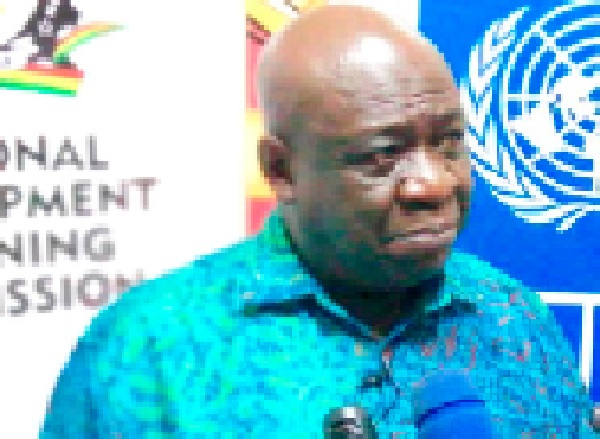
200 Attend conference on ‘Implementation of AfCFTA’
THE eighth in a series of regional conferences and stakeholder engagement on the Implementation of the African Continental Free Trade Agreement (AfCFTA) was held in Ho yesterday.
More than 200 participants from the Association of Ghana Industries (AGI), Ghana Union of Traders, and members of the business community of the Volta Region attended the programme which was organised jointly by the Ministry of Trade and Industry (MOTI) and the National AfCFTA Coordination Office.
The objective was to explain some essential modalities on AfCFTA to the entrepreneurs.
The conference topics included the comparative advantages and challenges for trading under AfCFTA, the role of Customs as the competent authority for trading under AfCFTA, regional preparedness for the implementation of the AfCFTA and pathways to harnessing its benefits.
The National Coordinator of AfCFTA, Dr Fareed Arthur, said at the opening that Ghana played a leading role in the establishment of AfCFTA, which has its headquarters in Accra.
For that matter, he said much was expected from Ghana to ensure the success of the free trade agreement.
He said although Africa, with a population of 1.4 billion, had the largest natural resources in the world to contribute to the development of other continents for 400 years, it contributed only three per cent to global trade.
Wealth
Dr Arthur said the developed nations amassed wealth by trading among themselves, while trade among Africa countries only stood between 12 per cent and 15 per cent, and that highlighted the need for a paradigm change in Africa.
So far, Dr Arthur said, 54 of the 55 African countries had ratified the free trade agreement, the success of which depended on the establishment of structures to open up markets for the free movement of goods, services and people across the continent.
“That also means we must explore every region in the country to identify the various business opportunities,” he added.
The Volta Regional Minister, Dr Archibald Yao Letsa, said the AfCFTA initiative was an opportunity for young people to accelerate Africa’s industrialisation and economic transformation through entrepreneurship within an enabling policy framework.
“The level of economic activity in our various areas of jurisdiction in the region is not very encouraging, a situation which is clearly reflected in the downward productivity in agriculture, financial technology, IT and in the creative industry,” he revealed.
Viable enterprises
Dr Letsa said the region had only a few viable enterprises and the number of people they employed was also low.
Consequently, most of these businesses were not able to export products out of the region, let alone the country, he said.
“The Ministry of Trade and Industry, therefore, needs to be commended for coming out with the much needed initiative in the form of the conference, since the indicated objectives are tailor-made to help each one of us to succeed in our various fields of endeavour, be it within the public sector or in other capacities within the private sector entities,” Dr Letsa said.
He said apart from the education, the people stood to gain from understanding government policies, programmes and projects. The conference would also enable the private sector to get a better understanding of opportunities that existed in the region to invest in them.
Dr Letsa maintained that trade facilitation was of high interest to the government, especially in view of current economic challenges.
Power supply
The Volta Regional Coordinating Director, Augustus Awity, who presented a paper on ‘Comparative advantages and challenges under AfCFTA in the Volta Region,’ said power supply in the region was erratic and poor, a situation which was not conducive to the realisation of the objectives of the free trade agreement.
Further, he said, the deficiency in the human and technological capacities of small and medium enterprises (SMEs) put them at a disadvantage, when compared to larger corporations.
Mr Awity insisted there was the need for more education on AfCFTA in the Volta Region.